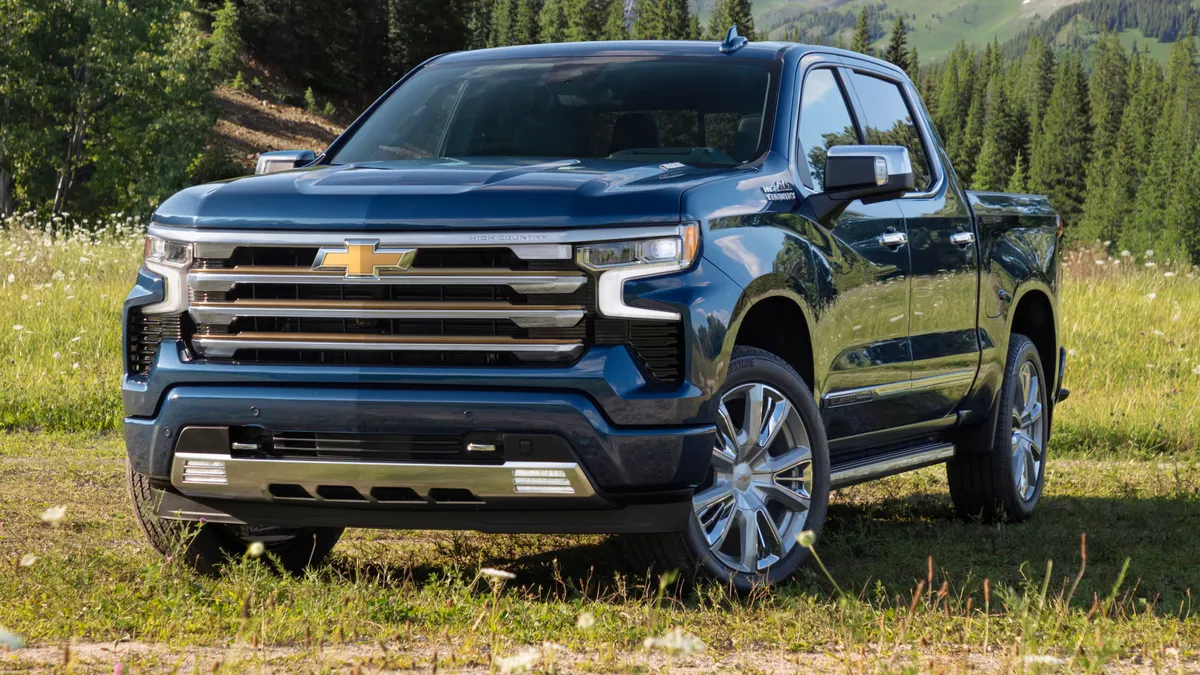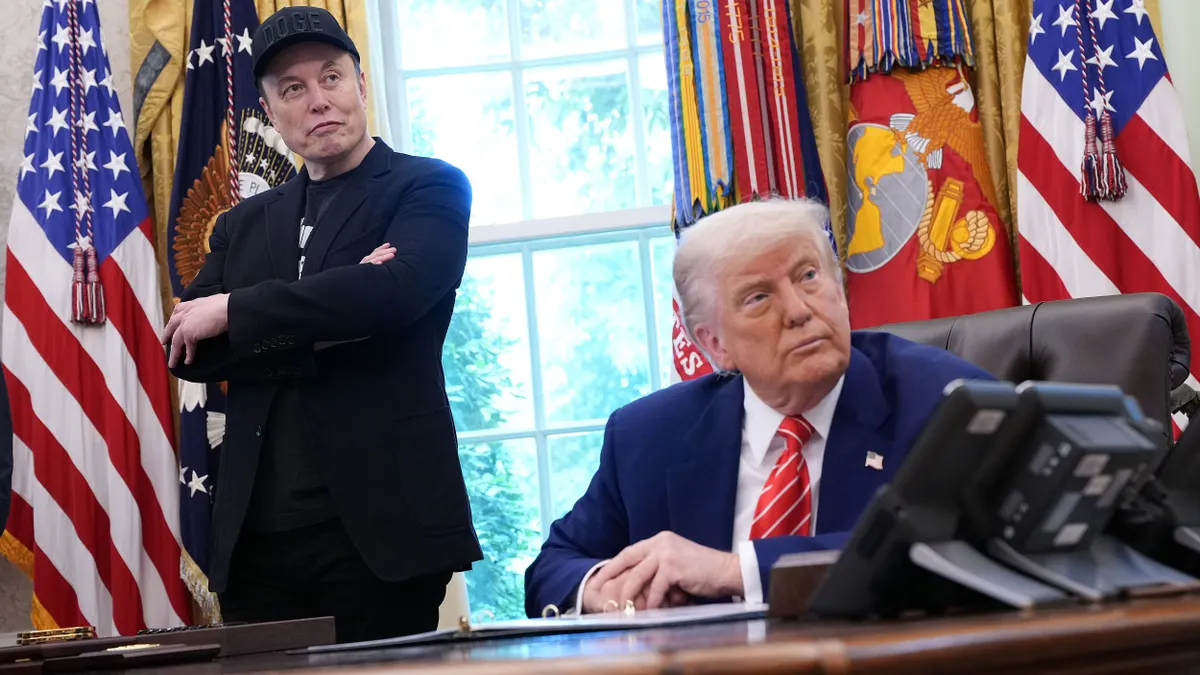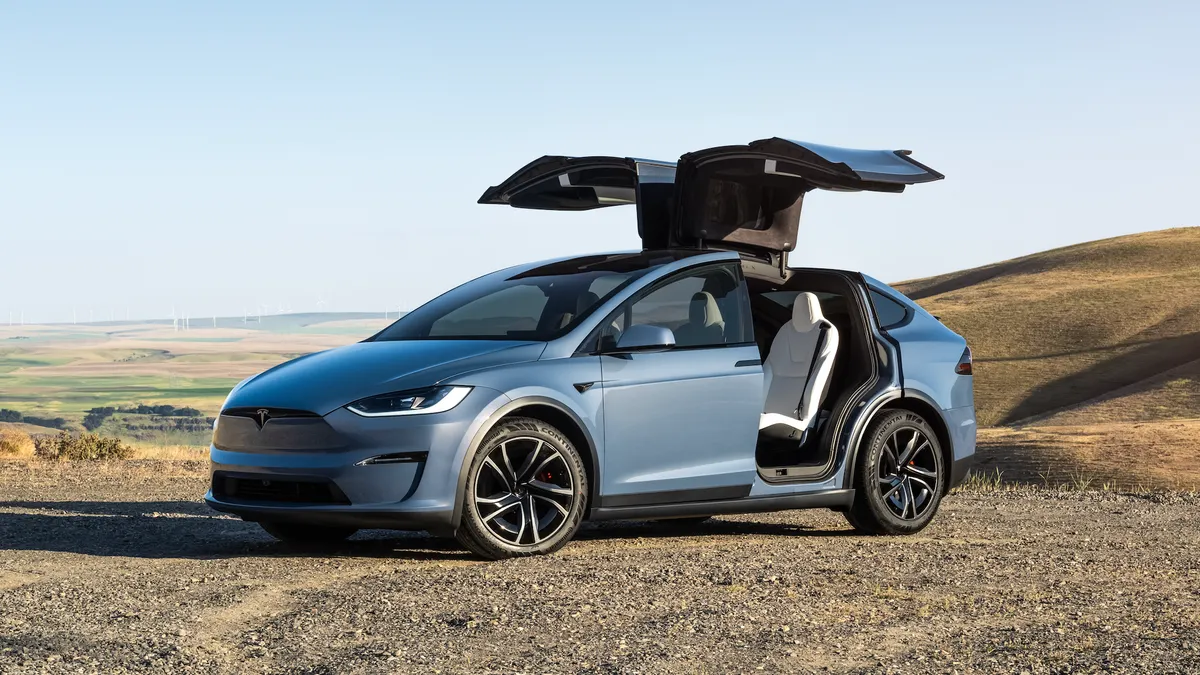Editor's note: This story is part of the WardsAuto digital archive, which may include content that was first published in print, or in different web layouts.
John Krafcik believes in the power of data, reverently describing it as something that “will set you free.”
Good data can confirm (or dispel) intuitions, spark change and “make the light bulb go on,” he says.
Krafcik spent 10 transformative years at Hyundai Motor America, five as president and CEO, before leaving on the last day of 2013.
Under his leadership, the company increased market share 50% and introduced novel programs, such as a vehicle buy-back guarantee for customers who lost jobs during the recession.
Now, Krafcik, a former Ford engineer, has joined the board of directors at TrueCar, a data cruncher that provides online vehicle-pricing information to consumers and sales leads to dealers.
He’s also been busy as an automotive and technology consultant. “I haven’t been able to catch my breath,” he says.
In a WardsAuto interview, Krafcik discusses vehicle pricing, consumer misperceptions, marketplace dynamics, challenges to the franchised dealership system and life after Hyundai.
WardsAuto: TrueCar positions itself as helping consumers and dealers. How can it do both?
Krafcik: We put together a suite of tools to help dealers do a better job of delivering pricing that would delight consumers while at the same time deliver the margins dealers need. We’ve worked on what needs to be done to help bridge the trust gap between consumers and dealers.
We did a consumer survey with Strategic Vision and asked three questions. The first was: “How much profit do you think a dealership makes on a new $30,000 car?” The average response was 18% profit or $5,400. If only, right?
Perception vs. Reality
WardsAuto: When AutoNation CEO Mike Jackson was head of Mercedes-Benz USA, dealers were earning 13% margin on cars and he cut that, saying it was too much.
Krafcik: That was a very famous margin realignment Mike engineered way back when. It’s an interesting subject.
The second question we asked consumers was: “What do you think is a fair profit margin for dealers to make? That number was 12%, or 3,600 bucks. Well, dealers would be very happy and profitable with that, but they don’t make 12% margins.
Then we asked: “If dealers made zero profit on new-car transactions unless you provided a tip like at a restaurant, what percentage would you pay as a tip?” The average response was 8%.
So we have new-car buyers saying, “If I knew dealers weren’t making anything on a $30,000 car, I’d write them a check for $2,400 because I know they need to make a reasonable profit to run their businesses and cover expenses.”
The National Automobile Dealers Assn. survey indicates the average dealer profit was 3.8% (down from 5.5% in 2003). So there is a problem. I like to say data will set you free. The data shows the need to build a bridge of trust between dealers and consumers. I realized there was that opportunity with the TrueCar platform. The TrueCar motto is “You never overpay.”
WardsAuto: How do you address the dealer side of the equation?
Krafcik: By providing the dealer with more pricing tools that help them understand what transaction prices really are for models and trim levels and finer details like powertrain in their market.
At Hyundai, when we got the Veloster (sport compact) up and going, we matched supply to demand. But as we brought on the Veloster Turbo, they became very hot and supply was continuously short. So Veloster Turbo pricing could be and should be higher as a percentage of MSRP. With the TrueCar pricing tool, dealers can see how the Veloster and Veloster Turbo are doing in their market, and can set prices for specific configurations. If Turbos are transacting at a higher level, you can set inventory pricing accordingly.
WardsAuto: In that case, who is setting the pricing? Is the market setting it?
Krafcik: Dealers always set the price.
Does MSRP Mean Much?
WardsAuto: Ultimately it’s their call, but is the market setting the price, and where do the manufacturers fit in in terms of their MSRP meaning something?
Krafcik: It’s a suggested retail price, what manufacturers might have as a sense of what they want to sell the car at. Or not. It depends on the manufacturer. Some have a strategy of setting an MSRP and going to market with a $1,000 or $2,000 consumer rebate. So, they really weren’t thinking they’d ever sell the car at MSRP from the start.
WardsAuto: Do you think automakers in general do a good job of setting MSRPs or are those just wild stabs?
Krafcik: Different companies have different philosophies. For example, if you thought there was an opportunity to attract consumers with relatively low credit scores, you would go to market with a strategy that has big cash rebates because those consumers frequently have issues with putting down payments together.
If you thought you had an opportunity to attract high-credit-score consumers, you might set your MSRP lower than otherwise, not utilize rebates and seek to have a higher residual value because you know people with high credit scores have a higher propensity to lease.
Setting your pricing strategy really depends on who you are targeting and who you think your car will be most aligned with. From that standpoint, MSRP is an interesting number, but just the fact that it is suggested is an indication.
WardsAuto: So “suggested” is the operative word?
Krafcik: It is. Some cars do great, and the MSRP is suggested on the low side. In San Francisco, if you want to buy a Range Rover Evoque, you are going to pay over list price.
It goes back to data, which is like a flashlight you use in a dark room so you don’t bump into furniture. With data, dealers get a clear sense of what pricing is in their markets. Sometimes those forces will be in the direction of higher prices opposed to an oversupply situation.
WardsAuto: What was your opinion of TrueCar when you were with Hyundai? A lot of automakers, notably Honda, had some problems and felt TrueCar hurt transaction prices.
Krafcik: TrueCar underwent a remarkable transformation 18 or so months ago. Some aspects of the model needed to be redefined and reconfigured. There hadn’t been enough emphasis on providing dealers with the tools to better price their inventory.
WardsAuto: What car are you driving these days?
Krafcik: I have a Porsche 911 that’s my daily driver and a Caterham Super 7, a little British sports car that weighs about 1,100 lbs. (499 kg). I bought it from a guy who imported it from the U.K. It has insanely good steering, and it’s an absolute delight to drive.
WardsAuto: Is the steering wheel on the right side?
Krafcik: Yes.
WardsAuto: Does that make driving in California difficult?
Krafcik: In some ways it makes it easier, because you know where the curb is. What’s strange is shifting with your left hand.
Role at TrueCar
WardsAuto: What exactly is your role at TrueCar?
Krafcik: I’m on the operating committee so I have hands-on opportunity to work with the team and provide counsel and advice. I’ll spend time with dealers, listening to them and figuring out ways we can improve the TrueCar platform to better serve their needs. I’m really looking forward to that.
I love engaging with dealers. I have so much respect for the American automotive retailing system. I’m a true defender and believer of that system.
WardsAuto: Then what do you think of Tesla bypassing the traditional dealership system?
Krafcik: It’s something we need to be appropriately skeptical about. It’s another competing idea. It needs its time to be explored. I don’t want to get into my own personal opinions about its strengths or weaknesses, but it’s something we need to watch carefully and understand.
With the Tesla model, MSRP is a manufacturer dictate. Perhaps that works well for lower-priced consumer products; people bring up Apple and Apple stores. I’m not sure that model scales particularly well for a high-volume, high-priced commodity like an automobile.
WardsAuto: When you left Hyundai, some people speculated you might end up as a college professor at a school like Stanford. Are you interested in a professorship?
Krafcik: (Laughs) I’m more interested in making change in the auto industry. I love the industry and love to serve it.
WardsAuto: A lot of people were surprised you left Hyundai. How do you feel about your stint there?
Krafcik: It was terrific. Hyundai gave me a great opportunity to help make changes at the company and within the industry. I’m grateful for that.


















